KPMG and Sanofi release frst bespoke discussion paper on self-care in Vietnam
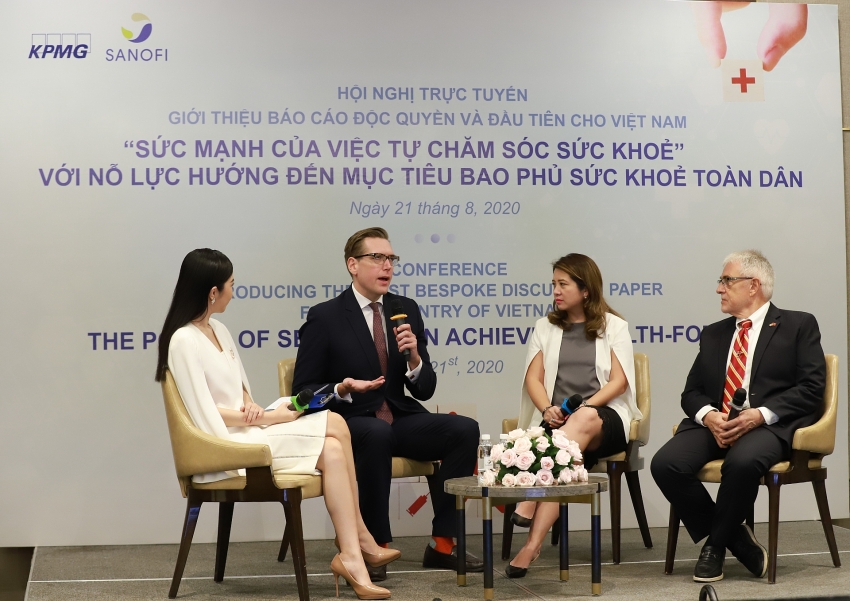 |
| The panel discussion on the results of The Power of Self-care in Achieving Health-for-All report |
According to the paper conducted by KPMG with the sponsorship and cooperation from Sanofi Vietnam, Vietnam belongs to the group of countries having developed health systems in the ASEAN region with nearly 90 per cent of the population (approximately 84 million people) covered by social health insurance. With the remarkable achievements in the fight against COVID-19 pandemic recently, Vietnam has demonstrated their outstanding medical capacity and been striving to achieve Universal Health Coverage by 2030, as a part of the United Nations’ Sustainable Development Goals.
However, the white paper identifies many emerging challenges that Vietnam’s health system is facing. In particular, a fast-growing aging population; mounting healthcare expenses pressing families into poverty; the rise of non-communicable diseases as a consequence of improper lifestyles, and others.
Self-care has proved to be effective in many countries across the world. Proactivity in disease prevention and self-management in minor acute issues bring multilateral benefits spanning across patients, government, and industry.
Besides, the white paper demonstrates the socio-economic advantages gained from self-care implementation in Vietnam. For instance, the country’s healthcare system could save approximately $370 million to $610 million from annual disease treatments and unlock up to $4.2 billion in annual economic outcomes. The report envisions the Vietnamese economy could increase by up to $6 billion in 2025. The adoption of self-care is also compatible and strongly align with the aim and initiatives of the “Sức khỏe Việt Nam” programme.
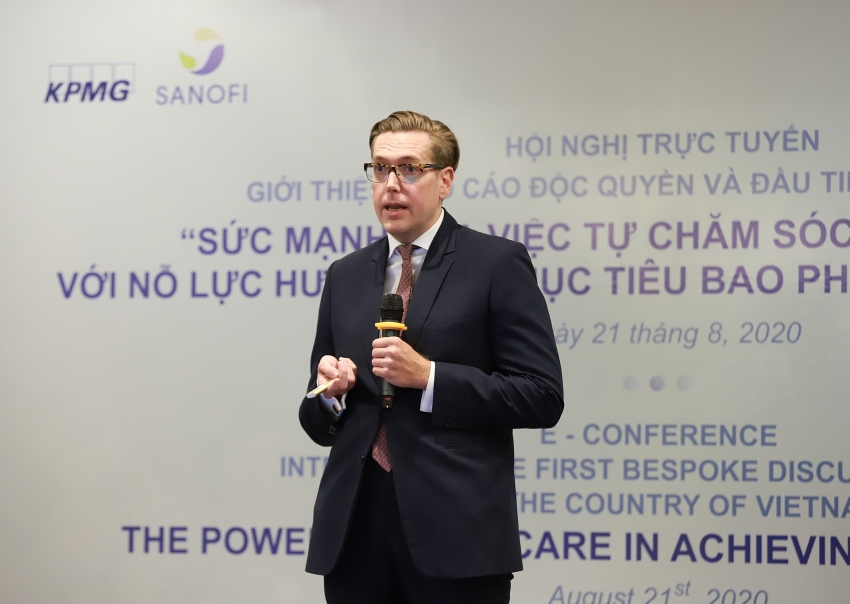 |
| Luke Treloar, director, head of Healthcare and Life Sciences, KPMG in Vietnam |
Luke Treloar, director, head of Healthcare and Life Sciences, KPMG in Vietnam, said that, “The discussion paper looks into one of the biggest challenges that Vietnam’s health system is facing on its pathway toward the 'Vietnam 4.0' vision and Universal Health Coverage goals. According to KPMG’s operation experience and detailed findings in many developed countries, we have studied the benefits of promoting and implementing self-care and its initiatives in the developing context of Vietnam.”
According to the World Health Organization, self-care is the ability of individuals to promote health, prevent disease, and maintain health to cope with illness. In other words, self-care is essentially the practice of allowing individuals to manage their wellness efficiently and to coordinate with healthcare experts when needed.
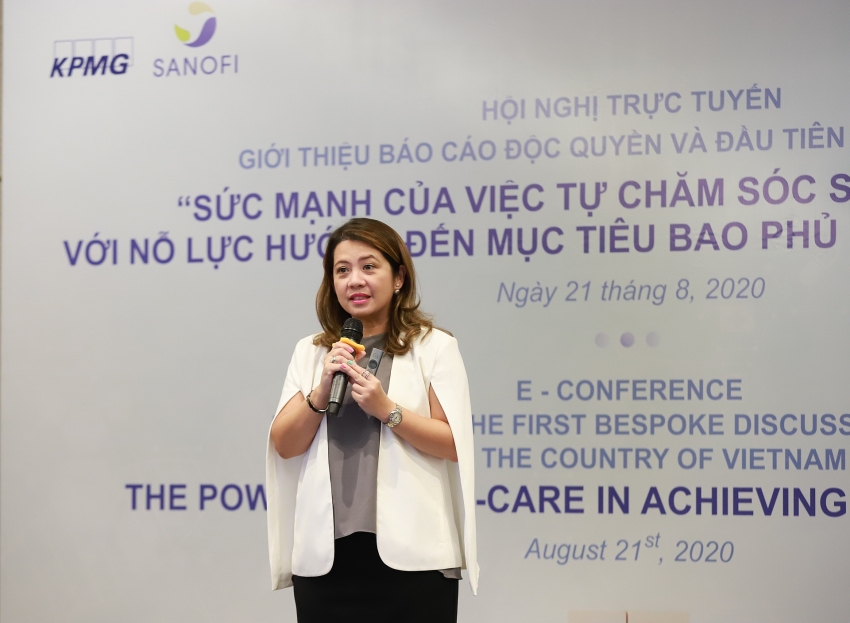 |
| Penn Policarpio, general manager, Sanofi Consumer Healthcare, Vietnam and Cambodia |
“With scientific evidence and multilateral benefits that the model brings to patients, the government, and the industry are a motivation for Sanofi and KPMG to launch the discussion paper,” said Penn Policarpio, general manager, Sanofi Consumer Healthcare, Vietnam and Cambodia.
Sanofi Vietnam has a staff of over 1,000 across the country. Its products have been present in Vietnam for over 50 years. Sanofi is the only multinational pharma corporation which owns three WHO-GMP factories in Vietnam, supply 80 per cent of Sanofi’s products in the country.
In 2018, Sanofi Vietnam took the lead in the market with a 4 per cent market share. In 2019, Sanofi Vietnam received an import license for pharmaceutical trading in Vietnam, pursuant to the Ministry of Health’s Decision No.2542/QD-BYT and Decree No.54/2017/ND-CP dated May 8, 2017. This accreditation turns Sanofi into the first lawful multinational importer in the drug production industry in the country.
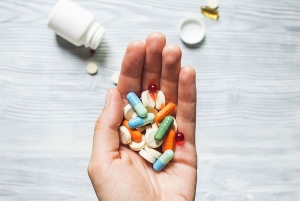 Japanese drug maker ASKA to acquire 24.9 per cent of Ha Tay Pharmaceutical JSC Japanese drug maker ASKA to acquire 24.9 per cent of Ha Tay Pharmaceutical JSC |
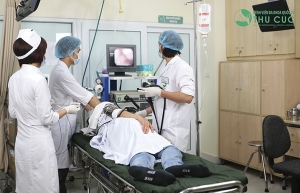 Cash injections for private hospitals Cash injections for private hospitals |
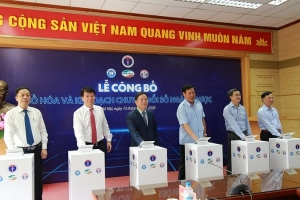 Vietnam announces digital transformation plan for pharma industry Vietnam announces digital transformation plan for pharma industry |
What the stars mean:
★ Poor ★ ★ Promising ★★★ Good ★★★★ Very good ★★★★★ Exceptional
Related Contents
Latest News
More News
- 14th National Party Congress wraps up with success (January 25, 2026 | 09:49)
- Congratulations from VFF Central Committee's int’l partners to 14th National Party Congress (January 25, 2026 | 09:46)
- List of newly-elected members of 14th Political Bureau announced (January 23, 2026 | 16:27)
- 14th Party Central Committee unanimously elects To Lam as General Secretary (January 23, 2026 | 16:22)
- List of members of 14th Party Central Committee announced (January 23, 2026 | 09:12)
- Highlights of fourth working day of 14th National Party Congress (January 23, 2026 | 09:06)
- Press provides timely, accurate coverage of 14th National Party Congress (January 22, 2026 | 09:49)
- Press release on second working day of 14th National Party Congress (January 22, 2026 | 09:19)
- Minister sets out key directions to promote intrinsic strength of Vietnamese culture (January 22, 2026 | 09:16)
- 14th National Party Congress: Renewed momentum for OVs to contribute to homeland (January 21, 2026 | 09:49)

 Tag:
Tag:























 Mobile Version
Mobile Version